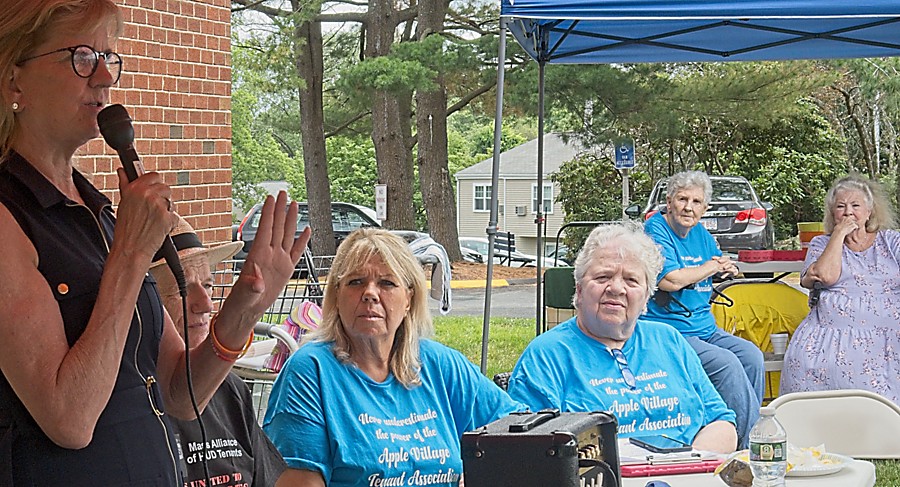Let’s Stop Blaming Tenants

Paul Leighton reports in “I Hate Where I Live” (Salem News, e-edition, April 22, 2024) that a culture of fear and bullying at Apple Village, a subsidized housing development in Beverly, has been on public display before Housing Court Chief Justice Timothy Sullivan. One tenant is facing eviction and the former manager of the property is no longer there.
Apple Village in Beverly has two HUD-subsidized apartment buildings for elderly and disabled. In June, 2023, tenants of Apple Village alleged they were the targets of harassment, abuse, bullying, and deliberate actions to create stress. Each of the two rival tenant associations accused the other of bullying. Some blamed and some praised the manager. The problems were pervasive. The situation was hostile environment harassment. Report, June 24, 2023 http://stopbullyingcoalition.org/apple
“Hostile environment harassment” consists of unwelcome conduct creating a situation that makes it difficult or impossible for victims to have the peaceful enjoyment of their residency.
Apple Village is vulnerable to bullying, mobbing, and hostile environment harassment like many other public and subsidized housing developments. The housing system does not provide guidance and support for landlords, nor does it protect the rights of tenants through effective oversight.
The symptoms of hostile environment harassment include bullying; scapegoating and labeling someone as “not belonging here;” eviction of a targeted person; and groups competing for dominance and the support of management. People are deprived of their rights.
The landlord is legally responsible for preventing and eliminating bullying and harassment and assuring the right of peaceful enjoyment. Tenants can’t hold the landlord accountable because bringing a civil suit is usually beyond their means. There is no agency with the authority to intervene. It is indeed rare that these problems are considered by a court because the court may only see the eviction case without a perspective of the social context. At Apple Village, it took a public trial and reporting by Paul Leighton and the Salem News to finally galvanize the landlord’s management company, APT Management Inc., to do something.
Tenants have established legal rights, which are detailed in the 2018 Attorney General Advisory: All Tenants Have a Right to Be Free from Harassment and Intimidation.
It is unlawful for landlords or other housing providers to allow harassment or intimidation by one tenant against another tenant.
A failure by housing providers—including property owners, managers, and real estate agents—to comply with these laws may result in significant legal liability.
However, there is no effective oversight and very rare enforcement of the rights of tenants.
We need legislation to create new programs that can help to prevent and remedy mobbing and hostile environment harassment.
Supported by many of the 92,000 elderly and disabled tenants of public and subsidized housing in the Commonwealth, I have as Coordinator of the Stop Bullying Coalition partnered with legislators including Senator Joan Lovely and Representatives Tom Walsh, Sally Kerans, and Jerald Parissella as well as other tenant advocacy groups to create a law to ensure our rights as tenants and citizens. We worked together to establish the 2017 Commission on Bullying where I served as a commissioner representing the Stop Bullying Coalition, carrying out extensive research to identify the nature and causes of harassment in housing.
Yet, after a decade of advocacy, we remain without a law to create an office of the tenant advocate within the Office of the Attorney General to provide accountability for landlords and the prevention of hostile environment harassment and a complementary law to establish best practices, training, and resources for landlords.
Tenants urgently need both these measures to ensure their rights and prevent the chaos and abuse that leads people to fear their neighbors and hate their homes.
“Getting rid of” one or two people will not solve the problem because the turmoil and pain at Apple Village result from the disruption of community life and the failure of the landlord to meet their legal responsibility rather than the alleged bad acts of any individual. Apple Village is an example of a failure of governance and oversight throughout the system of public and subsidized housing.
Do the residents deserve this fate because they are poor, elderly, and disabled?
